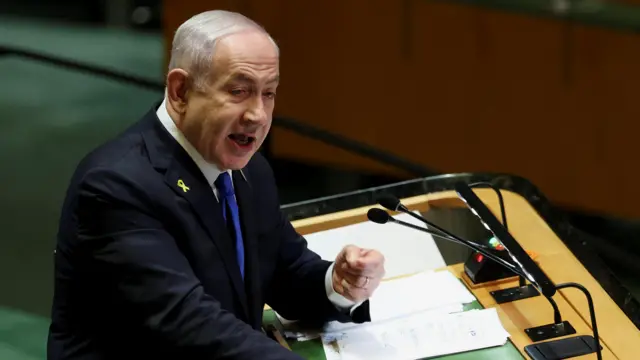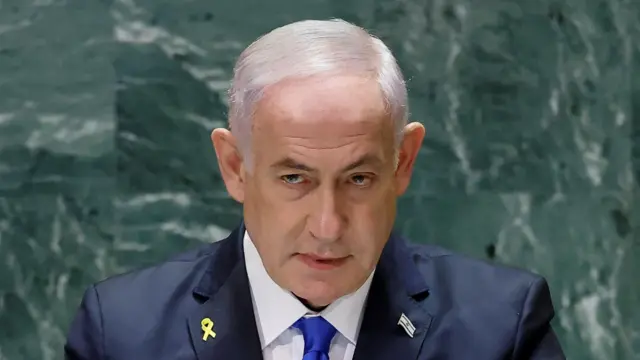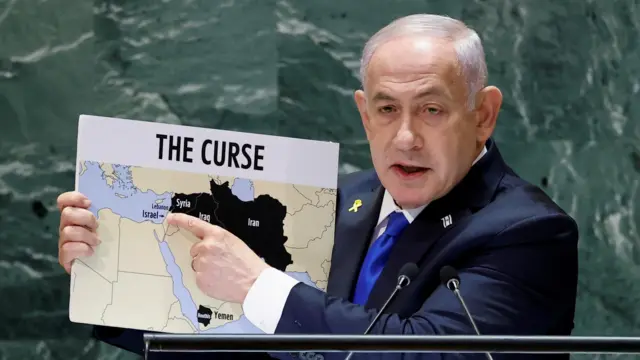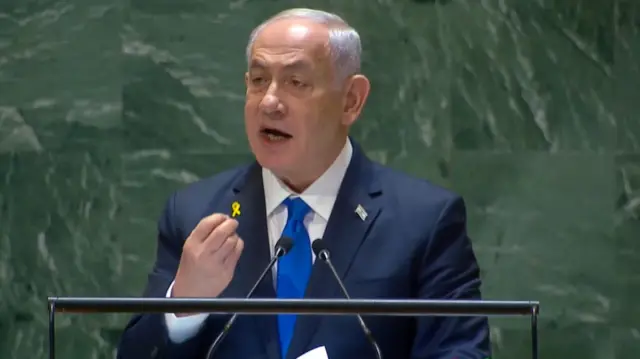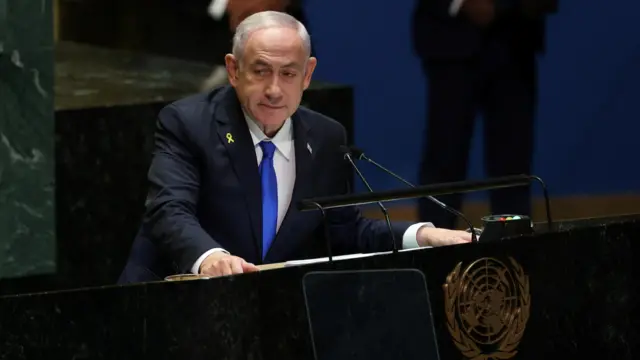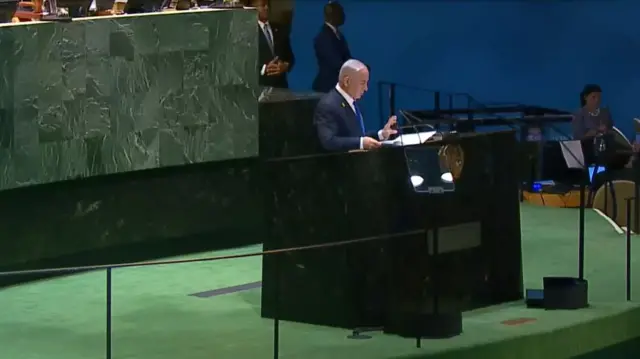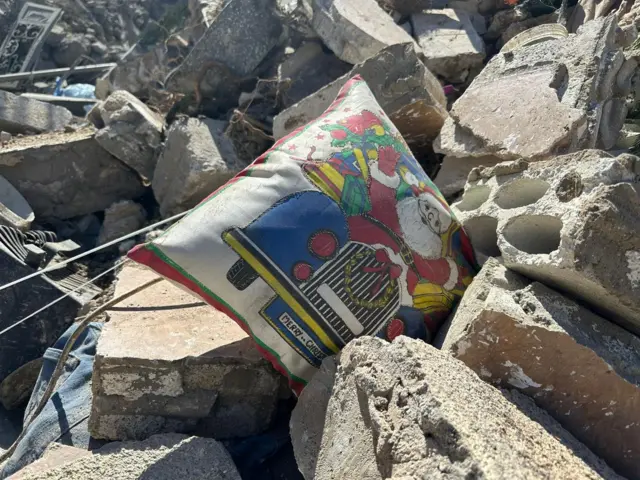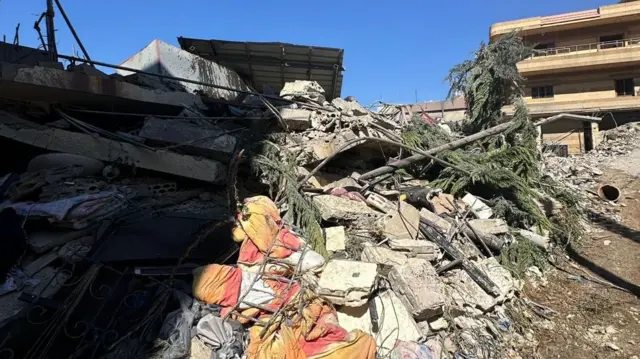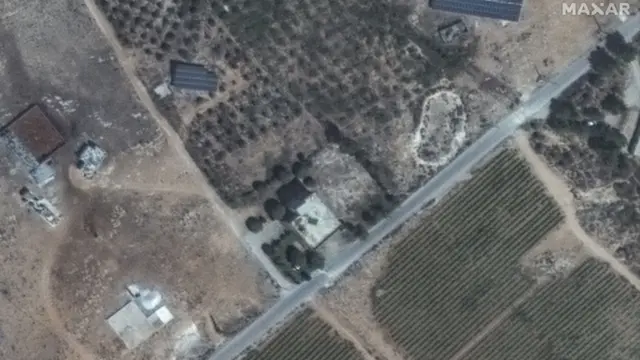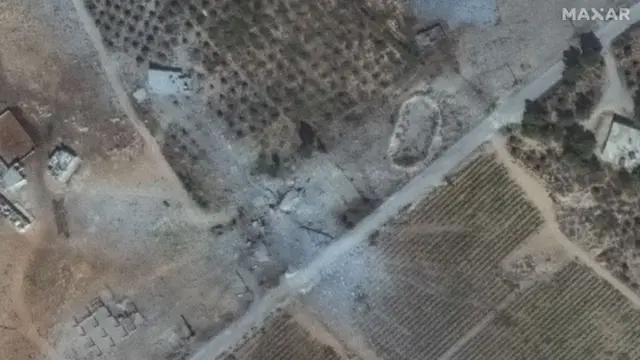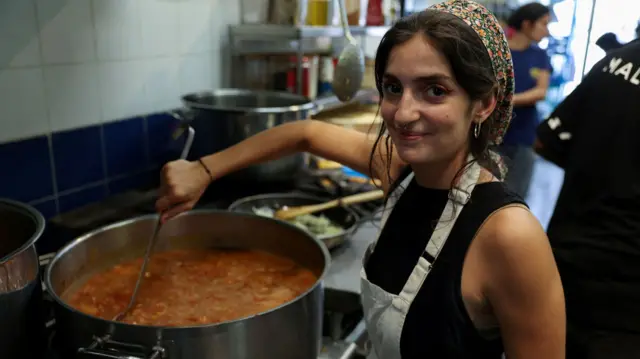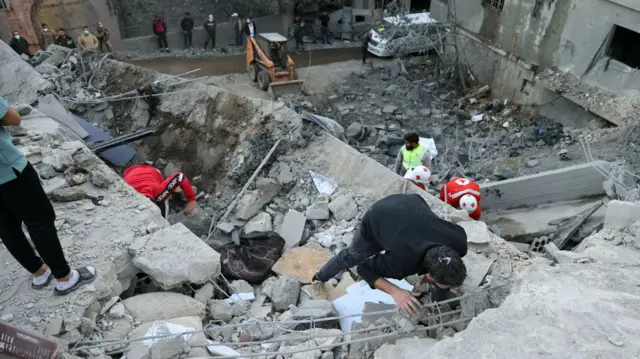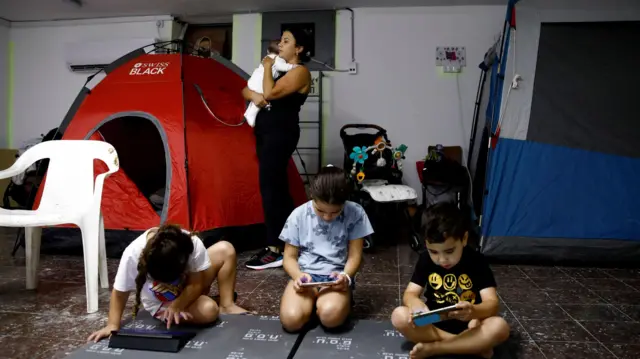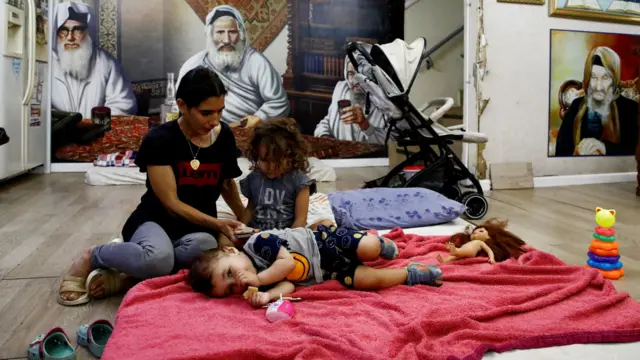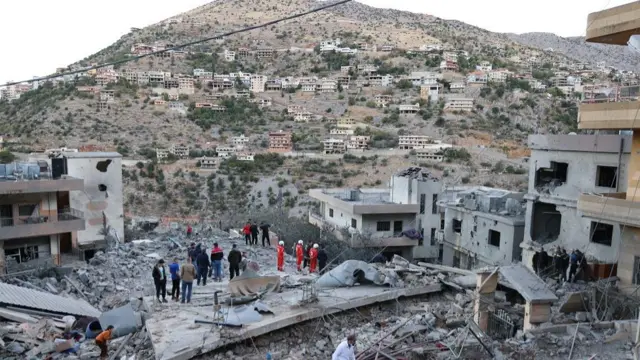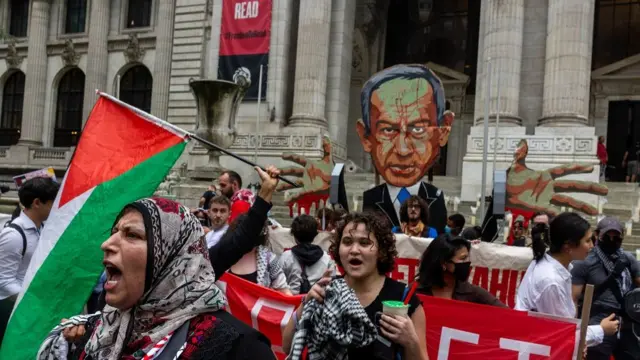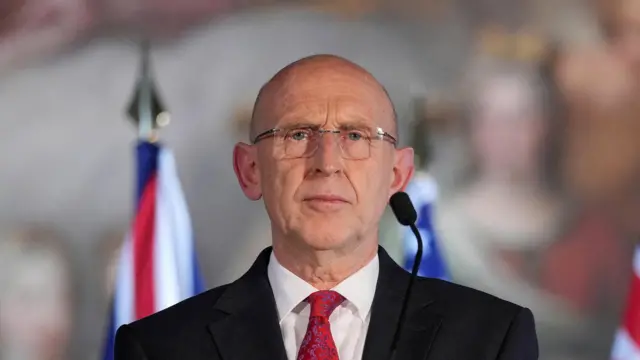'What a joke' - Netanyahu ends by criticising UN 'house of darkness'published at 15:27 BST 27 September 2024
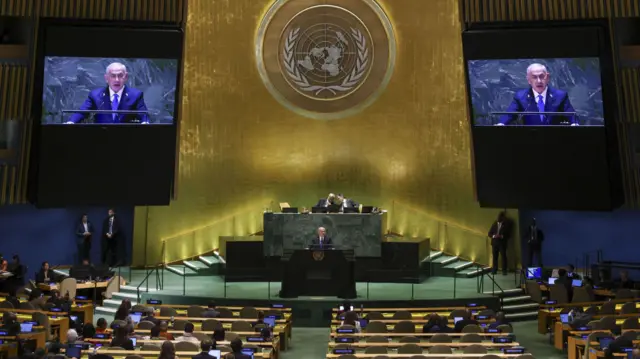 Image source, EPA
Image source, EPANetanyahu ends his address by saying that until Israel is treated fairly as other nations, no one will take the UN seriously.
He describes the UN as "this UN house of darkness". "In this swamp of antisemitic bile, there is a majority willing to dehumanise the Jewish state" he says.
In the last decade there have been more resolutions passed against Israel than resolutions against the entire world combined, Netanyahu tells the assembly.
"What hypocrisy. What a double standard. What a joke."
The war criminals are in Iran, Gaza, Syria and Lebanon, he says.
When our people were butchered, he says - referring to the Holocaust - no one raised a finger in our defence. "Now we have a state of our own and we are defending ourselves", he says. "Israel will win this battle because we don't have a choice."
